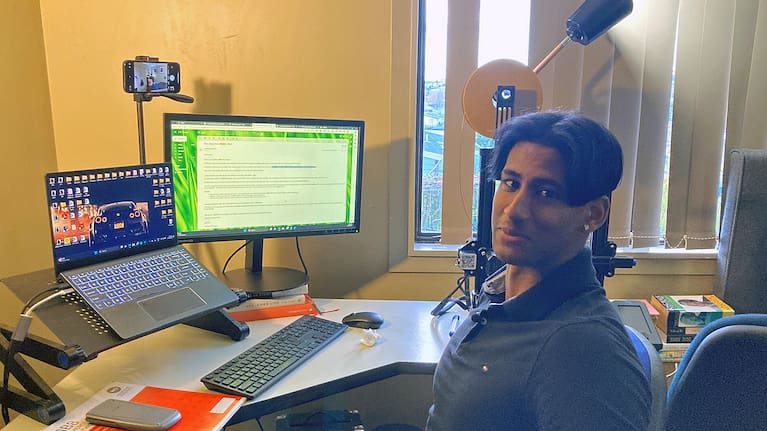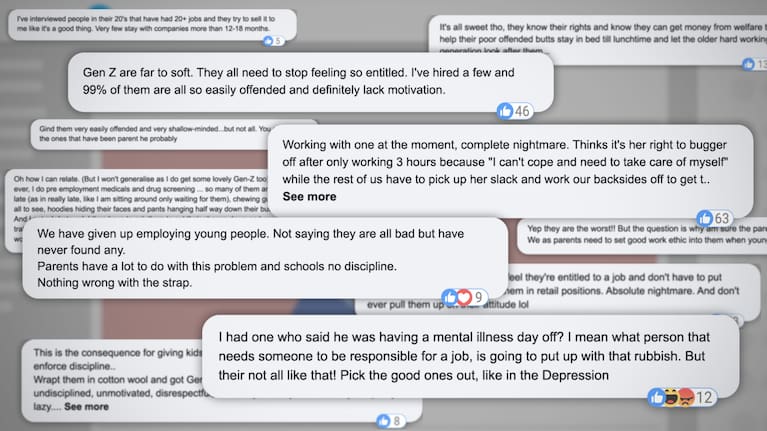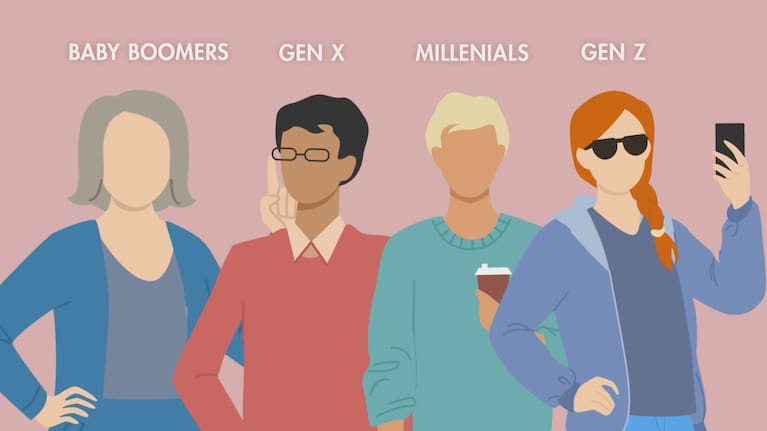Flexibility, work-life balance, a sense of purpose. Gen Z wants to work differently. Soon these young workers will make up a third of the workforce, but are their expectations unreasonable? Sunday reporter Mava Moayyed reports.
Amol Kumar knows what he wants. He is on the hunt for a job and there's a set of questions he asks before applying:
"Firstly, is the pay OK? Is this a place where I can grow and extend my thinking? Can I travel for work? Because I don't want to be stuck in an office all day."
The 23-year-old has just completed degrees in engineering and commerce at the University of Auckland.
"I should be providing value for you, and I should only want to work for you if you can provide me the value as well. It should go both ways," he said.
Kumar is part of Generation Z, those born between 1997 and 2012. By 2025, Gen Z will make up a third of our workforce.
"Us Gen Z, we're much more aware and we know what we want. We want to voice our thoughts and I think social media has given us the power to do that," he said.
"We have the skill set, we know what we can do. We have these big open innovative ideas and we're always fighting for change."

But not everyone sees that as a positive. A US survey published earlier this year found 74 per cent of managers and business leaders believe Gen Z is the most difficult generation to work with, citing their lack of motivation and their tendency to be easily distracted and easily offended.
TVNZ's Sunday spoke to multiple New Zealand employers across different industries who agree, saying often their Gen Z employees have unreasonable salary expectations and poor work ethic.
While they wanted to remain anonymous, it doesn't take long to find scores of Kiwis on social media who share their views.
Jarrod Haar (Ngāti Maniapoto and Ngāti Mahuta), professor of management at Massey University, said these stereotypes are a broad oversimplification.
"Are there some like that? Sure, but there are some 50-year-old workers who appear bored and unmotivated and have been in the same job for 20 years. I do think the new kid on the block type thing is why Gen Z is getting a hard time," he said.
Haar has made a career out of studying our work habits and said while generational differences do exist with Gen Z, most of them are positive.
"We see this current young generation looking to do something meaningful [and] I do think work/life balance has become more valued," he said.
"In terms of technology, I think Gen Z is far more likely to be able to deliver than older generations."

Unlike any other generation before them, Gen Z haven't known the world without the internet, and many have had smartphones for most of their lives. They're the first truly digitally native generation.
Kumar remembers joining social media when he was a 10-year-old.
"I think it's made me much more connected. I feel like I'm always available to everyone. But its strength is also its downside. Always being available, always being switched on can be a bit taxing to your mental health," he said.
Gen Z have grown up with major global issues like climate change, social injustice, and economic instability. The Covid-19 pandemic and New Zealand's unaffordable housing market have also influenced their expectations about work.
Kumar's student loan is $80,000 and he thinks it'll take him about 20 years to pay it back.
"I have to start thinking about buying a house now. I'm 23 but [with] student debt and all of these other things, money is an important factor."
He's not alone. The top concern for Gen Z in New Zealand is the cost of living, with 49 per cent saying they live paycheck to paycheck and worry they won't be able to cover their expenses, according to the Deloitte Global 2023 Survey.
"In terms of salary, I'm looking at about $70,000," Kumar said.
"I know a lot of engineering companies start at $60,000, but with work experience I have and my second degree, I think $70,000 is very reasonable, especially if you compare it to salaries over in Australia."
Haar sees nothing wrong with young employees negotiating high salaries but said their success all depends on the job market.
"At some stage those doors will simply get slammed when unemployment gets up to four-and-a-half, five per cent, so I think it's fine to be trying to make hay while the sun is shining, because it has been shining."
While salary is an important factor in deciding whether to take a job, research suggests Gen Z actually value salary less than every other generation. A sense of purpose and doing work that brings them job is paramount.
"I would refuse to take a job that makes me so sad that I wake up every day and as soon as I get to the office all I can think about is going home," Kumar said.
Haar said meaningful work is also a major factor in whether Gen Z stay in a job.

"Gen Z workers are more likely to think about quitting their jobs, and my latest data is also showing that that Gen Z are about three times more likely to consider moving to Australia.
"I do think there is this tendency to think 'I'm going to change my job, I'm not happy' or 'I'm bored and I want to do something more meaningful, something more exciting now'."
Another major generational difference, Haar said, is their attitude towards work/life balance.
"My research shows workers who have better balance enjoy lots of benefits. They like their jobs more, and more likely to stay, better mental health.
"I really hope [Gen Z] can maintain that balancing because then we're creating healthier generations of workers, right? But I do worry that we'll just gobble them up and churn them out and turn them into ourselves in 10 years' time."
Kumar can't wait to land his dream job with a good salary, opportunity to travel and a strong sense of purpose. But he says no matter how good the job is, it won't be his entire life.
"Both my mum and dad work about six days a week and they're very proud of that.
"I don't want to be working all the time. You have to look after yourself and all of the other aspects of your life too because work isn't everything. You're not going to be 80 years old and be like 'I wish I worked more'."


















SHARE ME